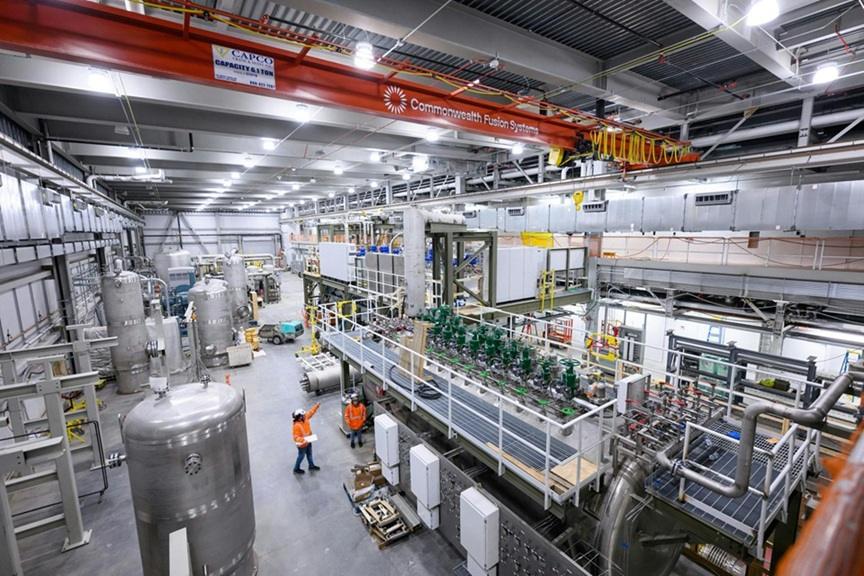Commonwealth Fusion Systems (CFS) announced it that it has raised $863 million in a Series B2 fundraising round, with proceeds from the financing aimed at accelerating the company’s path to commercializing fusion energy.
The company said it will use the capital to complete its fusion demonstration machine under construction in Massachusetts and continue development on its first grid-scale fusion power plant, in Virginia. The company aims to connect the latter to the grid in the early 2030s, supported by strategic partnerships with Dominion Energy and Google, which has agreed to purchase half the plant’s output.
Fusion, the process of combining two atoms to form a single atom to release energy, has been long referred to as the “Holy Grail” of clean and abundant energy production, given its potential to produce power from hydrogen – the most common element in the universe – without producing carbon emissions associated with fossil-fuel based power, and without the highly radioactive output of nuclear fission processes.
Spun out of MIT in 2018, Massachusetts-based CFS is working to develop the world’s first net-energy positive – producing more energy than it consumes – fusion device, to prove and scale the production of fusion energy. The company is currently collaborating with MIT’s Plasma Science and Fusion Center to build SPARC, a demonstration machine using a “tokamak” design, which arranges high-temperature superconductor magnets in a donut shape to confine and control plasma, in order to create the conditions necessary for fusion.
SPARC is anticipated to be the precursor to CFS’s first commercial plant, ARC to be developed in Chesterfield, Virginia, which the company expects to be the first grid-scale fusion power plant in the world.
Ally Yost, Senior Vice President of Corporate Development at CFS, said:
“CFS offers investors the clearest path to bringing commercial fusion to the world – and an unprecedented opportunity to make a real impact as global demand for power accelerates with electrification and increased use of AI and data centers. Along with the promise of energy independence and security, fusion power will help to expand energy access, and with it, improve quality of life.”
The new funding round follows a recent agreement between CFS and Google, including an investment by Google into CFS, and the largest-ever direct corporate offtake agreement for fusion energy, with CFS to supply energy to Google from the planned ARC plant.
The round expanded CFS’ investor base, bringing new investors including Brevan Howard Macro Venture Fund, Morgan Stanley’s Counterpoint Global, and NVIDIA’s venture capital arm NVentures, among others. The funding round was also backed by a consortium of 12 Japanese companies led by Mitsui, Mitsubishi and the Development Bank of Japan.
Existing backers including Bill Gates-backed Breakthrough Energy Ventures, Google and Eni, Lowercarbon Capital, and others, increased their stakes.
Carmichael Roberts, Managing Partner at Breakthrough Energy Ventures, said:
“Achieving commercial, affordable fusion power would be one of the most transformative milestones in human history—delivering clean, limitless energy to help strengthen energy security and improve global living standards. CFS is advancing fusion at a pace and scale that can turn this future into reality—providing a unique opportunity to shape the energy landscape, especially as AI and data centers are driving unprecedented demand.”
Following CFS’ $1.8 billion fundraise in 2021, this brings total funding to nearly $3 billion, accounting for about one-third of all private investment in the global fusion sector.
Bob Mumgaard, CEO and Co-Founder of CFS, said:
“Investors recognize that CFS is making fusion power a reality. They see that we are executing and delivering on our objectives. This funding recognizes CFS’ leadership role in developing a new technology that promises to be a reliable source of clean, almost limitless energy – and will enable investors to have the opportunity to capitalize on the birth of a new global industry.”

